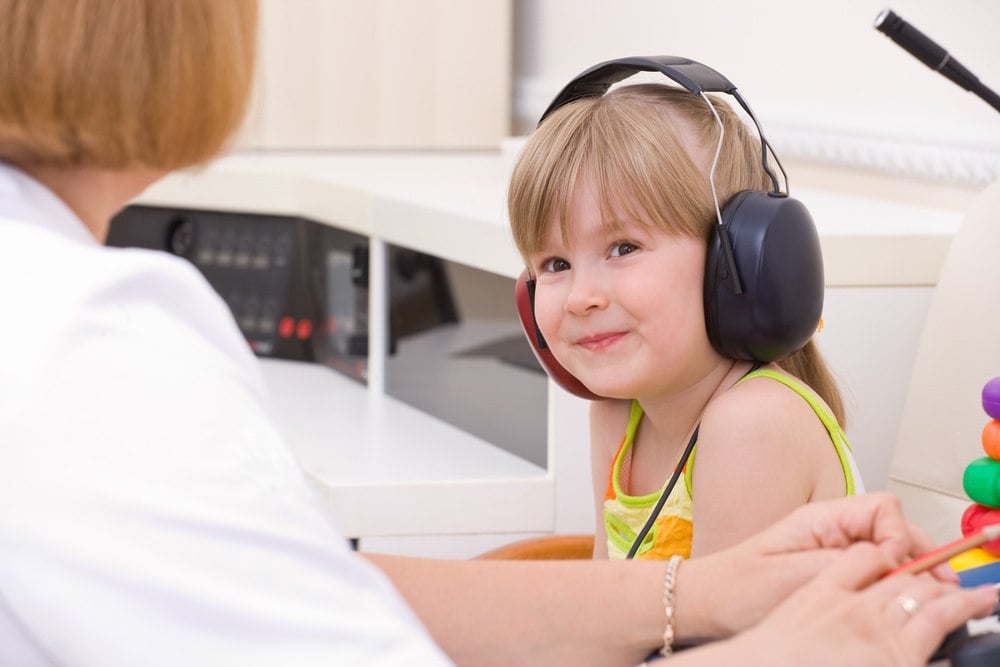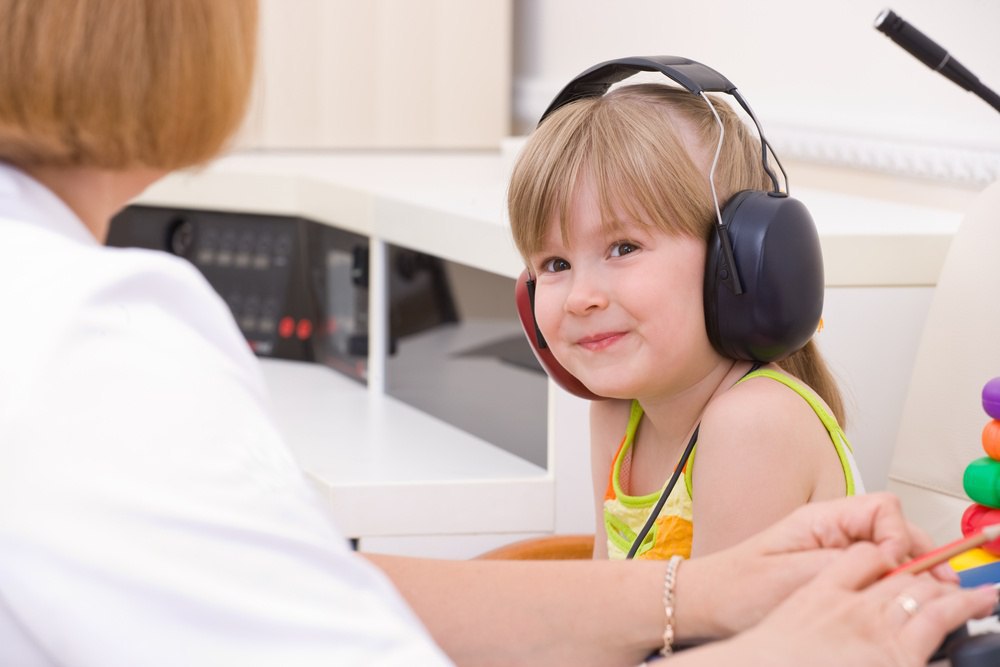What is a Hearing Test? (Types and Reasons)
July 19th, 2017 | 5 min. read


It might be disheartening to you to think that you could be suffering from hearing loss. But what you might not realize is that the longer you wait to get your hearing tested and address the problem, the more severe your condition can get. What’s more, you might not realize that you can significantly improve your quality of life by using modern solutions for hearing loss, such as the Cochlear implant or hearing aids.
Hearing loss is fairly prevalent in the U.S. Based on standard hearing examinations in the U.S. one in eight (13 percent) of people 12 years old or older has a loss of hearing in both ears. Around 37.5 million (15 percent) of American adults who are 18 years old or over-report some problem with their hearing. The most common hearing impairment symptoms are:
-
feeling as though everyone is mumbling or talking too quietly
-
having problems understanding what people are saying,
-
and failing to notice some important everyday sounds.
The good news is that you can manage it with having regular check-ups and using technology, such as hearing aids, to your advantage. In fact, more than 28 million individuals could benefit from wearing hearing aids, according to the National Institute on Deafness and Other Communication Disorders (NIDCD).
The problem, however, is that many people don't undergo essential hearing tests out of fear they may have a hearing impairment. But, actually learning exactly what's going on with you and finding ways to manage it will benefit you.
If you suspect you may be struggling with hearing loss and to get a diagnosis, you should schedule an appointment with us here at Houston ENT & Allergy.
Reasons for a Hearing Test
A great first step in receiving a diagnosis and treatment for hearing loss is through getting a hearing test. There is a number of hearing test types with each having their own benefits. Factors like your medical history or age will determine which hearing test will work best for you.
Reasons for hearing tests include:
Screen Infants and Younger Children
One reason is to screen or check infants and younger children who are struggling with hearing issues that could affect how they speak, learn, and understand language. According to the U.S. Preventive Services Task Force, all infants should be screened for hearing loss. Every state in the U.S. requires that all babies born in hospitals receive a hearing test. Additionally, many physicians and health groups recommend a routine screening.
Your child or teen should have their hearing checked by their physician at each well-care visit. Some learning problems and speech behavior in children can be due to hearing problems. Because of this, many schools offer children hearing tests when they first begin school and a formal hearing test each year through the ages of 4 through 10 years, suggests the American Academy of Pediatrics.
Chronic Hearing Problems
If it's hard for you to understand words in a conversation or you've noticed ongoing hearing issues in one or both of your ears, you should get a test.
Older Adults
Older adults should test for hearing issues. Often reduced mental ability is often suspected when its actually hearing loss. An example would be if an individual doesn't respond to the conversation or seems to not listen.
Exposure
Individuals should get a screening if they've taken certain antibiotics like gentamicin or if they're continuously exposed to loud noises. For instance, you may have noise-induced hearing loss, or NIHL.
Determine Type of Hearing Loss
Your doctor may suggest a test to figure out what type of hearing loss you have (sensorineural, conductive, auditory processing disorders, or mixed) and the degree. With sensorineural hearing loss, sound does reach your inner ear, but an issue with your ear's nerves or your brain itself (rare cases) prevents proper hearing. With conductive hearing loss sound conduction (sound movement) doesn't pass or is blocked from reaching your inner ear. Your brain has trouble processing the information contained in sounds when you have an auditory processing disorder.
Types of Hearing Tests

There are a number of tests your Houston ENT doctor t may use to identify and diagnose your hearing loss. The type used will depend on your age and other factors. Typically, an audiologist will administer your test. Frequently used tests for hearing include:
-
Pure-tone Testing
-
Speech Testing
-
Otoacoustic Emissions (OAEs)
-
Middle Ear Tests
-
Auditory Brainstem Response (ABR)
Below is an overview of each of these common tests used in diagnosing hearing problems.
Pure-Tone Testing
With a pure-tone test, the audiologist determines the faintest tones you can hear at specified frequencies (pitches), from low to high. You'll wear earphones during this test so the doctor can obtain information for both ears.
In some cases, during this test, earphones might not be possible. A good example is if a child is being tested and doesn't want to wear them. When this happens, the doctor will present the sounds through speakers inside a sound-field screening booth. However, the doctor might not detect a hearing loss in a single ear (a unilateral hearing loss) since sound-field screening doesn't provide ear-specific data.
If you're taking this test, the doctor or specialist will have you respond to sounds in several ways such as:
-
Pressing a button that points to your ear where you're receiving the sound.
-
Raising your hand or finger.
-
Indicate you've heard the sound by saying "yes".
The hearing specialist records the results in an audiogram. With children, the specialist will provide the child with a more play-like task to show a response. Techniques that are common involve conditioned play audiometry (CPA) and visual reinforcement audiometry (VRA).
Speech Testing
The audiologist also conducts tests of speech and listening. They'll record these results as well on the audiogram. The audiologist conducts a speech reception threshold (SRT) test first for adults and older children to confirm results of the pure-tone test. This test records the faintest speech heard half the time. They'll also record your ability to repeat words back correctly at a comfortable loudness level (word recognition).
The audiologist may conduct a speech test in a noisy or quiet environment. People with hearing loss commonly complain they can't understand speech in background noise.
Otoacoustic Emissions (OAEs)
This test delivers sounds to your inner ear when sound stimulates your cochlea. If it does, your outer hair cells will vibrate, and this vibration delivers a practically an inaudible sound that will echo back into your middle ear. The audiologist measures this sound with a small probe they insert into your ear canal.
When you have normal hearing, you produce emissions. If you have hearing loss, that's greater than 30 decibels (dB), you don't produce these extremely soft sounds. This test is usually part of an infant hearing screening program. It detects outer ear canal blockage and any presence of fluid in the middle ear. It also detects outer hair cell damage in your cochlea.
Middle Ear Test
During this test, the audiologist takes measurements that give data on how your middle ear is functioning. Types of measurements include:
-
Acoustic reflex measures
-
Tympanometry
-
Static acoustic measures
Middle ear testing is especially essential in preschool-aged children where their hearing loss is often due to middle ear disease.
Auditory Brainstem Response (ABR)
This hearing test provides the audiologist with data about your cochlear (inner ear) and brain pathways for hearing. It's occasionally called an auditory evoked potential (AEP). It's used in individuals and children who have a hard time with conventional behavioral techniques of hearing screening. The auditory brainstem response test is also used for individuals with symptoms, signs, or complaints that suggest a type of hearing loss in the brain pathway or brain itself.
During the ABR, the audiologist pastes electrodes on your head and records your brainwave activity that responds to sound. You'll sleep or rest quietly while they perform the test. You don't need to respond. ABRs are also used as a screen test in infant hearing screening programs. Only a single loudness or intensity level is checked when this screening test is used and the infant either passes the screen or fails.
Benefits of a Hearing Test
The biggest benefit you'll receive from an audiologist hearing test is that you'll be able to take care of yourself better. Your communication with other people improves and you're more aware of background and surrounding sounds. No matter what age you are, you shouldn't ignore a hearing test. They're non-invasive, informative, and focus on your natural hearing health.
If you suspect you may have a hearing loss problem, contact us here at Houston ENT & Allergy to get your hearing test done. If you do need a hearing aid, it will open up a whole new world of sound and communication for you.
Mark Lynn Nichols, M.D., received his Bachelor of Science degree with Honors in Pharmacy in 1983, prior to his entering the University of Texas Medical Branch, Galveston, Texas, where he received the degree of Doctor of Medicine with Highest Honors. Following his Internship in General Surgery, and Residency in Otolaryngology at UTMB, Dr. Nichols did a Fellowship in Otology-Neurotology at the Ear Research Foundation, in Sarasota, Florida. He is a member of several professional associations, and is a Diplomat of the American Board of Otolaryngology.
Topics:
